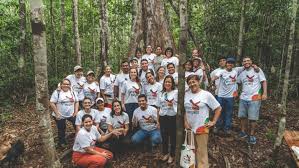In recent years, the concept of sustainable tourism has gained significant traction, with travelers increasingly seeking authentic experiences that minimize their environmental impact and benefit local communities. This article explores how sustainable tourism initiatives are transforming remote communities around the world, offering opportunities for economic development, cultural preservation, and environmental conservation.
Understanding Sustainable Tourism
Definition of Sustainable Tourism
Sustainable tourism refers to travel and leisure activities that focus on preserving natural environments, protecting cultural heritage, and promoting social and economic benefits for local communities. It seeks to minimize negative impacts on the environment and maximize positive contributions to community well-being.
Principles of Sustainable Tourism
Key principles of sustainable tourism include environmental conservation, cultural respect and preservation, community involvement and empowerment, and economic benefits for local residents. By adhering to these principles, sustainable tourism initiatives aim to create a balance between tourism development and environmental and social sustainability.
Impact on Remote Communities
Economic Development
Sustainable tourism initiatives provide remote communities with opportunities for economic diversification and growth. By showcasing local culture, traditions, and natural beauty, these initiatives attract tourists who are willing to spend money on accommodations, dining, souvenirs, and guided experiences, thereby generating revenue and creating jobs for local residents.
Cultural Preservation
Tourism can play a crucial role in preserving and promoting indigenous cultures and traditions. Sustainable tourism initiatives often involve community-based tourism projects that empower local residents to share their heritage with visitors through cultural performances, craft demonstrations, storytelling, and guided tours, fostering pride and appreciation for traditional practices.
Environmental Conservation
Remote communities are often situated in ecologically sensitive areas with unique biodiversity and natural landscapes. Sustainable tourism initiatives prioritize environmental conservation by implementing practices such as responsible waste management, energy efficiency, wildlife protection, and sustainable transportation options, ensuring that natural resources are preserved for future generations.
Examples of Sustainable Tourism Initiatives
Ecotourism Lodges
Many remote communities have developed ecotourism lodges that provide environmentally friendly accommodations in pristine natural settings. These lodges often incorporate sustainable design principles, such as using renewable materials, minimizing water and energy consumption, and supporting local conservation efforts.
Community-Based Tourism Programs
Community-based tourism programs engage local residents in the tourism industry by offering homestays, guided tours, cultural workshops, and other authentic experiences. These programs empower communities to showcase their unique culture and heritage while providing visitors with immersive and meaningful interactions.
Conservation Projects
Some remote communities have partnered with conservation organizations to establish protected areas, wildlife sanctuaries, and eco-friendly attractions that highlight the importance of biodiversity and habitat conservation. These projects contribute to environmental stewardship and offer educational opportunities for visitors to learn about local ecosystems and wildlife.
Embracing Sustainable Tourism
Sustainable tourism initiatives hold tremendous potential for transforming remote communities into vibrant, resilient, and environmentally conscious destinations. By embracing principles of sustainability, remote communities can harness the power of tourism to create lasting benefits for both visitors and residents, ensuring a brighter future for generations to come.




